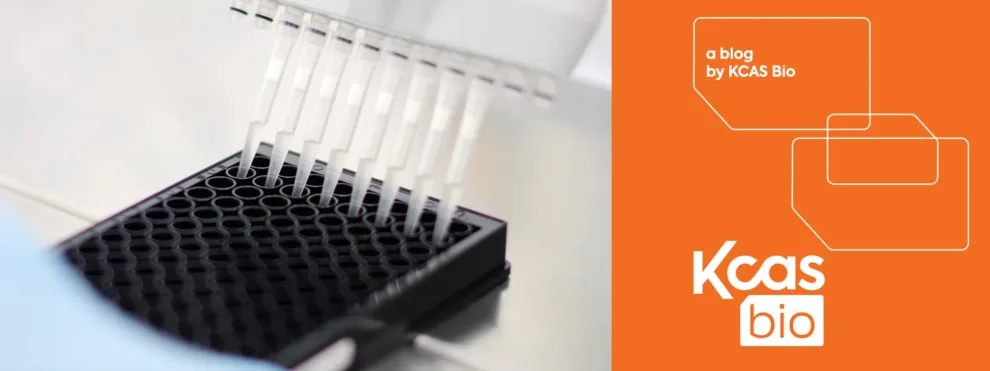KCAS Bio offers a wide range of biomarker services, from cell-based to soluble biomarker analysis, including ligand binding assays (LBA), across a variety of matrix types. Soluble biomarker analysis can be achieved on multiple platforms depending on factors such as sample type, required sensitivity, and whether multiplexing is needed. These assays include commercially available ELISA kits, Meso Scale Discovery (MSD), Luminex, SMXpro, and Ella, to name a few.
In the realm of multiplex assays, two platforms stand out for their innovative approaches and robust capabilities: Luminex and MSD. Both platforms offer unique advantages, making them ideal for biomarker analysis in drug discovery. Let’s dive into a detailed comparison and contrast of these two technologies.
Luminex Platform
- Technology: The Luminex platform leverages xMAP (Multi-Analyte Profiling) technology, which integrates advanced fluidics, optics, and digital signal processing with proprietary microsphere technology. This allows for the simultaneous detection and quantitation of multiple targets in a single well.
- Multiplexing: One of Luminex’s standout features is its high multiplexing capability. It can analyze up to 80 proteins, making it highly efficient for large-scale studies.
- Applications: Luminex is widely used for protein assays, including cytokines, chemokines, and growth factors, as well as gene expression analysis.
Meso Scale Discovery (MSD) Platform
- Technology: MSD employs electrochemiluminescence (ECL) detection with high-binding carbon electrodes. This technology is known for its high sensitivity and broad dynamic range.
- Multiplexing: While MSD typically multiplexes up to 10 analytes simultaneously, it excels in providing fast, accurate, and quantitative detection of biological samples at low volumes while achieving high sensitivity and a broad dynamic range.
- Applications: MSD is suitable for a wide range of assays, including cytokines and chemokines. Its high sensitivity makes it ideal for detecting low-abundance biomarkers.
- Formats and Sensitivity: MSD offers over 400 assay kits and customization capabilities. These assay kits are highly sensitive, the newest kits available, S-PLEX can detect biomarkers (mostly in the neurodegenerative space) at femtogram level.
Key differences between these two platforms:
- Detection Technology: Luminex uses fluorescence-labeled microspheres, while MSD utilizes ECL detection with carbon electrodes. This fundamental difference in detection technology influences their respective strengths and applications.
- Multiplexing Capacity: Luminex can multiplex up to 80 targets, making it suitable for high-throughput studies. In contrast, MSD typically multiplexes up to 10 targets.
- Sensitivity and Range: MSD’s higher sensitivity and broader dynamic range make it particularly useful for detecting low-abundance analytes, which can be crucial in biomarker analysis, especially in later phases of drug development.
How to choose between the two platforms
Both Luminex and MSD platforms offer powerful tools for multiplex assays and singleplex assays, each offering distinct advantages. Luminex’s high multiplexing capacity and versatility make it ideal for large-scale studies, particularly in early-stage studies when evaluating a broad range of biomarkers. In contrast, MSD’s superior sensitivity and dynamic range make it ideal for low-abundance biomarker detection.
The choice between these platforms ultimately depends on the context of use and the specific requirements of your biomarker analysis, whether you’re conducting exploratory studies with a broad panel of targets or need high sensitivity to detect low-abundance biomarkers in clinical or late-phase samples.
At KCAS Bio, we provide biomarker analysis by both MSD and Luminex platforms at two locations in the US and Europe. Our team will partner with you to understand the context of use for your study and recommend the most suitable platform and assay format to support your study’s goals. Whether you need regulated (GCLP) or non-regulated assay development, KCAS Bio offers customizable validation levels to meet your specific needs, from discovery through development.

